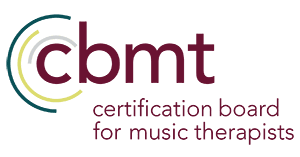State recognition is designed to officially recognize the MT-BC as the credential required to practice music therapy.
There are up to four options for occupational regulation of music therapy through legislation: title protection, registration, state certification, or licensure. Another form of state recognition occurs when music therapy is added to lists of state agency-recognized providers by being included in state regulations and codes.
State recognition has two primary benefits for constituents:
- It protects clients or patients from potential harm or misrepresentation from individuals that are not board certified music therapists and are not practicing under the CBMT Board Certification Domains (i.e., non-music therapy musicians in healthcare)
- It allows patients or clients and their families to access services provided by a board certified music therapist as determined by various state agencies such as the Department of Education, Department of Health and Human Services, Department of Disabilities and Special Needs, etc., that require service providers be state-recognized
State recognition has additional, ancillary benefits for constituents in your state:
- It increases awareness of music therapy as a profession, resulting in increased service referrals, increased jobs, and increased enrollment in educational training programs
- It increases access to private and public funding streams as most of these programs require that providers have a state-recognized credential.
- It provides additional validation of the contributions music therapists make as members of an educational or healthcare treatment team.
- It aligns us with professional practice in comparable professions.
Interested in helping? Connect with your state task force and learn how you can assist in your state’s recognition efforts.
